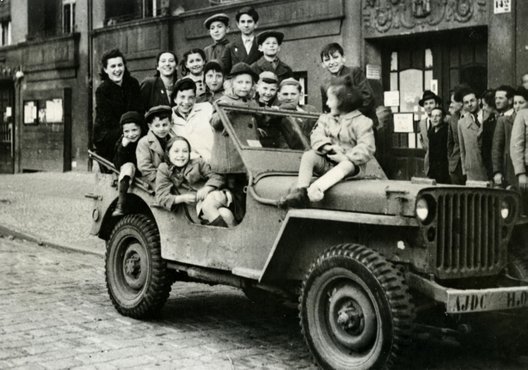Growing Up in Transient World
Some displaced persons passed through camps quickly, others spent months, but a large proportion lived there for years. For the latter, the camps served as a transitional home that helped prepare them for life in the outside world.
Making Do
Privacy and space were rarest amenities in the camps. Yet camp residents made room for newcomers.




Cold Comfort
Postwar fuel shortages and a record drop in temperature in the winter of 1947 made life in the camps even harder. At this time, the supply of electricity was also unreliable. JDC provided primus stoves to mothers of young babies, as many as could be found.



Ordinary Days
JDC worked collaboratively with the U.S. Army, UNRRA, and elected representatives from the displaced persons community to provide stability in the midst of unstable circumstances. For displaced children, learning proper hygiene and healthy behavior was important.





Just Being Kids
Child survivors had lived through a prolonged onslaught of terrible, haunting experiences. In DP camps, new life lessons were part of their education. They met adults there who cared for their well-being and served as positive role models. But their own resilient spirits guided them the most.




